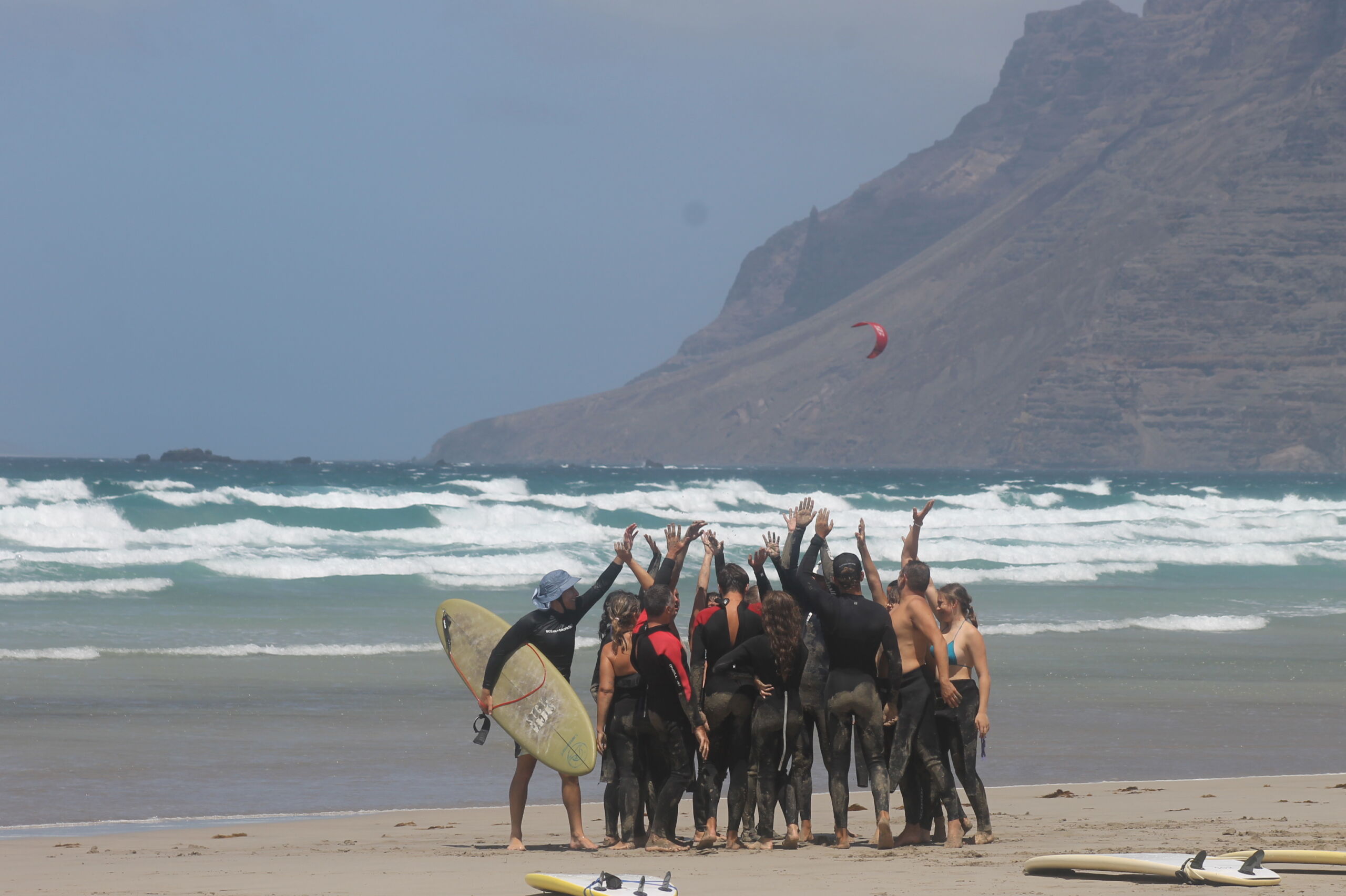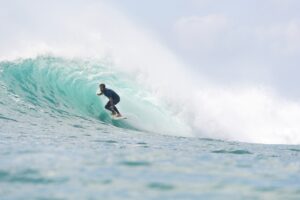
Surfing is an exciting and challenging sport that attracts millions of people around the world. Learning to surf can be a rewarding and enriching experience, and a surf school is the ideal place to start this journey. In this article, we will explore what a surf school is, the benefits of learning to surf, what is taught at these schools, and how to choose the best school for your needs.
Benefits of learning to surf
Improved Physical Condition
Learning to surf is not only fun, but it is also a great way to improve your physical condition. Surfing is a full-body sport that requires strength, flexibility, and stamina. Surf lessons will teach you how to improve your balance, coordination, and agility, which can be beneficial to other aspects of your life.
Mind Relaxation
Surfing can also be a therapeutic and relaxing activity. Contact with the ocean, waves and nature allows you to disconnect from daily routine and stress. Also, the physical exercise associated with surfing releases endorphins, which improves your mood and reduces anxiety.
Connection With Nature
Learning to surf gives you the opportunity to connect with nature in a unique way. Surfing allows you to experience the energy and power of the ocean, as well as appreciate the beauty of the natural environment.
What do you learn in a surf school?
Surfing Fundamentals
Surf schools teach the fundamentals of surfing, such as the history of the sport, the parts of a surfboard, and how to choose the right equipment.
Paddling Techniques
Paddling is an essential skill in surfing as it allows you to catch the waves and stay in position. Surf schools teach efficient paddling techniques and how to conserve energy during this crucial part of surfing.
Stand Up On The Table
One of the most important skills in surfing is learning to stand up on the board. Surf school instructors teach the correct technique for getting up and keeping your balance while riding the waves.
Wave Reading
Understanding how to read the waves is critical to being successful in surfing. Surf schools teach how to identify the best waves to surf and how to position yourself correctly in the water to catch them.
Standards And Safety
Safety is paramount in surfing, and surf schools teach proper rules in the water to prevent accidents and ensure an enjoyable experience for everyone.
Types of surf lessons
Group Classes
Group lessons are a great option for those looking to learn to surf in a fun and social environment. These classes usually have a group of students with similar abilities and an instructor who guides everyone through the lessons.
Private Classes
Private classes offer more personalized attention and can be ideal for those who wish to learn at their own pace or are looking to improve specific skills.
Surf Camps
Surf camps are multi-day or week-long programs that combine surf lessons with other activities and accommodation. These camps can be a great way to immerse yourself in surf culture and make friends with similar interests.
How to choose a surf school?
Location
Location is an important factor when choosing a surf school. Make sure the school is near a suitable beach to learn to surf and that the conditions are appropriate for your skill level.
Certifications
Look for surf schools that have recognized certifications, such as the International Surfing Association (ISA) or the National Surf Federation in your country. These certifications guarantee that the school meets certain quality and safety standards.
Instructors Experience
Make sure the surf school instructors are experienced and trained to teach people of different skill levels.
Opinions And Recommendations
Research surf school reviews and recommendations online or ask friends and family who have taken lessons. This will give you an idea of the quality of teaching and experience you can expect.
Frequent questions
- At what age can I start learning to surf? There is no specific age to start learning to surf.
- Many surf schools offer classes for children from the age of 5 or 6, but it is important to ensure that the child is comfortable in the water and has basic swimming skills.
- How long does it take to learn to surf? The time needed to learn to surf varies from person to person. Some may feel comfortable on the board after just a few lessons, while others may need more time to master the skills. The key is constant practice and patience.
- What equipment do I need to start surfing? To get started surfing, you’ll need a surfboard suitable for your skill level, a wetsuit (if water conditions require it), and a board leash. Surf schools usually provide the necessary equipment for the lessons.
- Is it safe to learn to surf? Learning to surf can be safe if you follow safety guidelines and choose a surf school with experienced and certified instructors. Make sure you know the rules of etiquette in the water and respect other surfers.
- How much does it cost to learn to surf in a school? The cost of learning to surf at a school varies by location, the type of lessons (group or private), and the length of the course. You can expect to pay between 30 and 90 euros for a group class and between 120 and 150 euros for a private class. Surf camps can cost from 350 to 1500 euros, depending on the duration and the services included.





